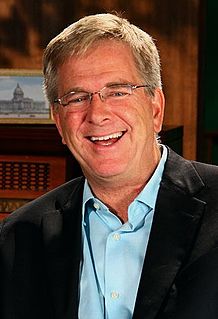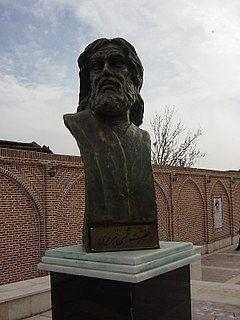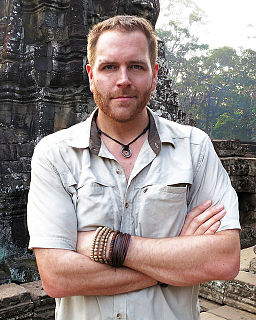A Quote by Rick Steves
I would like travelers, especially American travelers, to travel in a way that broadens their perspective.
Related Quotes
I would like travelers, especially American travelers, to travel in a way that broadens their perspective, because I think Americans tend to be some of the most ethnocentric people on the planet. It's not just Americans, it's the big countries. It's the biggest countries that tend to be ethnocentric or ugly. There are ugly Russians, ugly Germans, ugly Japanese and ugly Americans. You don't find ugly Belgians or ugly Bulgarians, they're just too small to think the world is their norm.
The Osage have this lovely phrase: 'Travelers in the Mist.' It was the term for part of an Osage clan that would take the lead whenever the tribe was venturing into unfamiliar realms. And, in a way, we are all travelers in the mist. The challenge is that, as writers, we sometimes want to ignore this murkiness, or we want to write around it.
[Jack Nash] was very different than anything I'd played. In fact, there's a scene I have in a tent with Louis Ferreira, who just did an episode of Travelers. He was in the fourth episode of Travelers playing another team leader, and we really have it out, not unlike the way we did in the tent in Andromeda.
A man of my acquaintance once wrote a poem called "The Road Less Traveled", describing a journey he took through the woods along a path most travelers never used. The poet found that the road less traveled was peaceful but quite lonely, and he was probably a bit nervous as he went along, because if anything happened on the road less traveled, the other travelers would be on the road more frequently traveled and so couldn't hear him as he cried for help. Sure enough, that poet is dead.

































